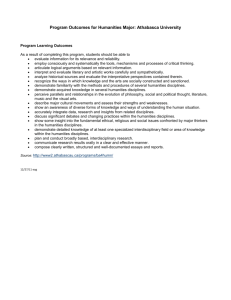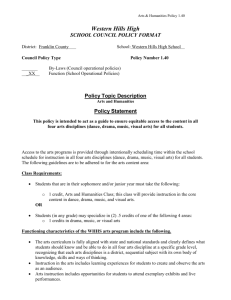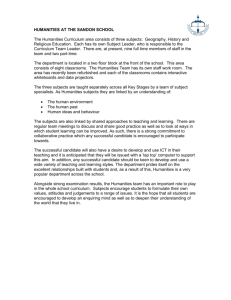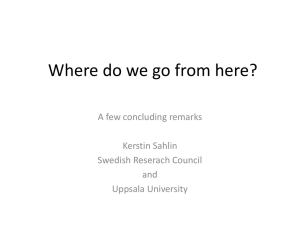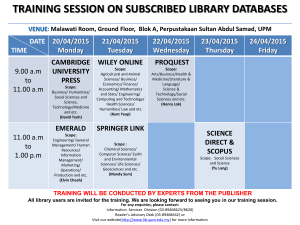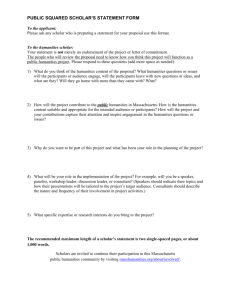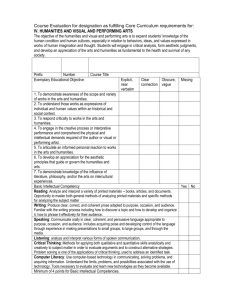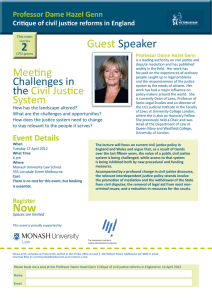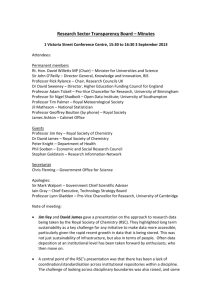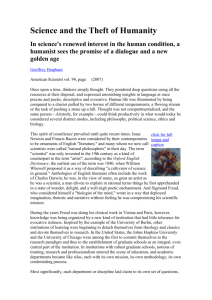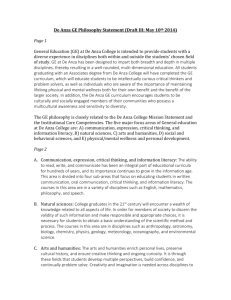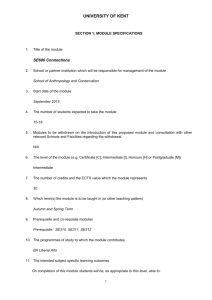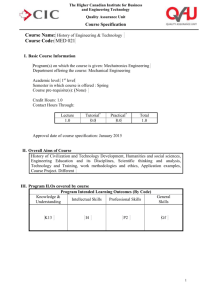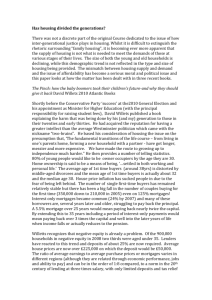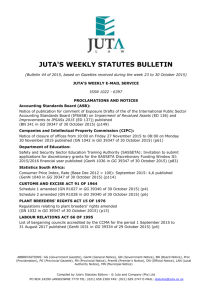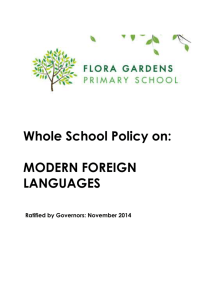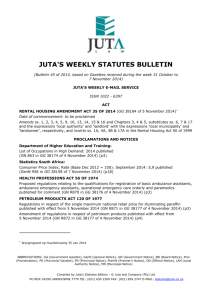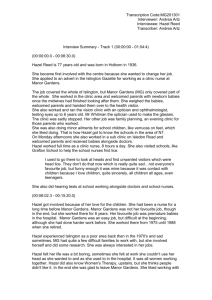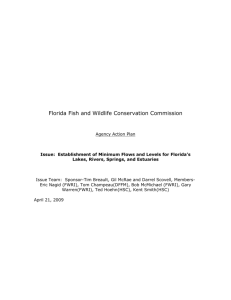`Arts, Humanities and Social Sciences: Why Should We Care?`, 20
advertisement
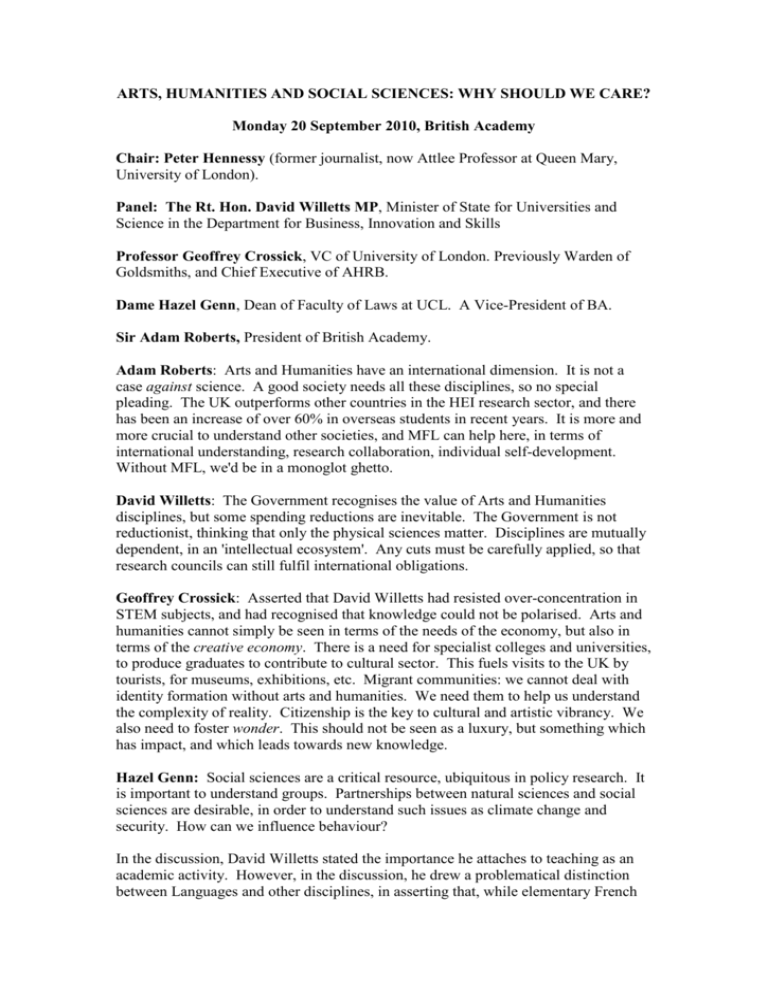
ARTS, HUMANITIES AND SOCIAL SCIENCES: WHY SHOULD WE CARE? Monday 20 September 2010, British Academy Chair: Peter Hennessy (former journalist, now Attlee Professor at Queen Mary, University of London). Panel: The Rt. Hon. David Willetts MP, Minister of State for Universities and Science in the Department for Business, Innovation and Skills Professor Geoffrey Crossick, VC of University of London. Previously Warden of Goldsmiths, and Chief Executive of AHRB. Dame Hazel Genn, Dean of Faculty of Laws at UCL. A Vice-President of BA. Sir Adam Roberts, President of British Academy. Adam Roberts: Arts and Humanities have an international dimension. It is not a case against science. A good society needs all these disciplines, so no special pleading. The UK outperforms other countries in the HEI research sector, and there has been an increase of over 60% in overseas students in recent years. It is more and more crucial to understand other societies, and MFL can help here, in terms of international understanding, research collaboration, individual self-development. Without MFL, we'd be in a monoglot ghetto. David Willetts: The Government recognises the value of Arts and Humanities disciplines, but some spending reductions are inevitable. The Government is not reductionist, thinking that only the physical sciences matter. Disciplines are mutually dependent, in an 'intellectual ecosystem'. Any cuts must be carefully applied, so that research councils can still fulfil international obligations. Geoffrey Crossick: Asserted that David Willetts had resisted over-concentration in STEM subjects, and had recognised that knowledge could not be polarised. Arts and humanities cannot simply be seen in terms of the needs of the economy, but also in terms of the creative economy. There is a need for specialist colleges and universities, to produce graduates to contribute to cultural sector. This fuels visits to the UK by tourists, for museums, exhibitions, etc. Migrant communities: we cannot deal with identity formation without arts and humanities. We need them to help us understand the complexity of reality. Citizenship is the key to cultural and artistic vibrancy. We also need to foster wonder. This should not be seen as a luxury, but something which has impact, and which leads towards new knowledge. Hazel Genn: Social sciences are a critical resource, ubiquitous in policy research. It is important to understand groups. Partnerships between natural sciences and social sciences are desirable, in order to understand such issues as climate change and security. How can we influence behaviour? In the discussion, David Willetts stated the importance he attaches to teaching as an academic activity. However, in the discussion, he drew a problematical distinction between Languages and other disciplines, in asserting that, while elementary French students can be taken straight to the 'high peaks' of literature, this would not be possible with, for example, advanced maths. He also stressed the way in which languages can provide a 'window on the world'. (When someone is kidnapped, we may need instantly to access someone who can speak a minority language or dialect fluently: UK has scored highly here, and not many countries can emulate it). While stressing that he could not get involved in particularised campaigns, he encourages the academic community to take a view about what its contributions are, while recognising that the practical details of how its activities are to be paid for need to be taken into account. Mary Bryden
